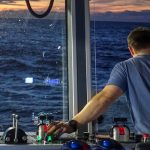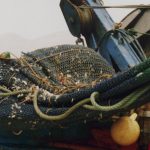According to researchers from the Institute for Agro-Food Research Technology (IRTA) the fishing of elver (Anguilla anguilla) in the Ebro River delta leads to the accidental capture of other fish species, with the capture of one ton of elver possibly resulting in the capture of up to 8.2 tons of accompanying species. The researchers have assessed the effects of this method of fishing and identified the most fragile species, propose improvements in current methodologies.
Scientists have identified that the capture of eel also brings in up to 17 species of fish which on average die in 36.5 percent of cases. They said that the “dramatic” situation of accompanying ichthyofauna (fish captured with elver), which represents 43 percent of the various types of species in the area studied (350 Km²), may lead to ecological imbalances since it is the smallest specimens that are most likely to die when captured.
Enric Gisbert, main researcher of the study, explained there is an urgent need to
Improve the fishing methods to reduce the mortality of accompanying ichthyofauna associated with capture processes and initial elver selection, as well as increase the sustainability of this activity.
The scientists told that the impact of elver fishing is not only on migratory species but might also ultimately affect resident species, as well as other strictly limnetic species. The data showed that for every one ton of elver captured, 8.2 tons of other fish species are accidentally fished too, without taking into account illegal fishing which could make up between 20 percent and 25 percent of captures.
Gisbert said that an improvement in the design of fishing nets used for “highly” selective fishing might be another solution as this would “only target the species to be fished”. He added that a simple alteration was made in the design of the fishing net, which significantly reduced the handling and selection time of elver, accidental captures, number of accidental species rejected during fishing and, naturally, deaths.








